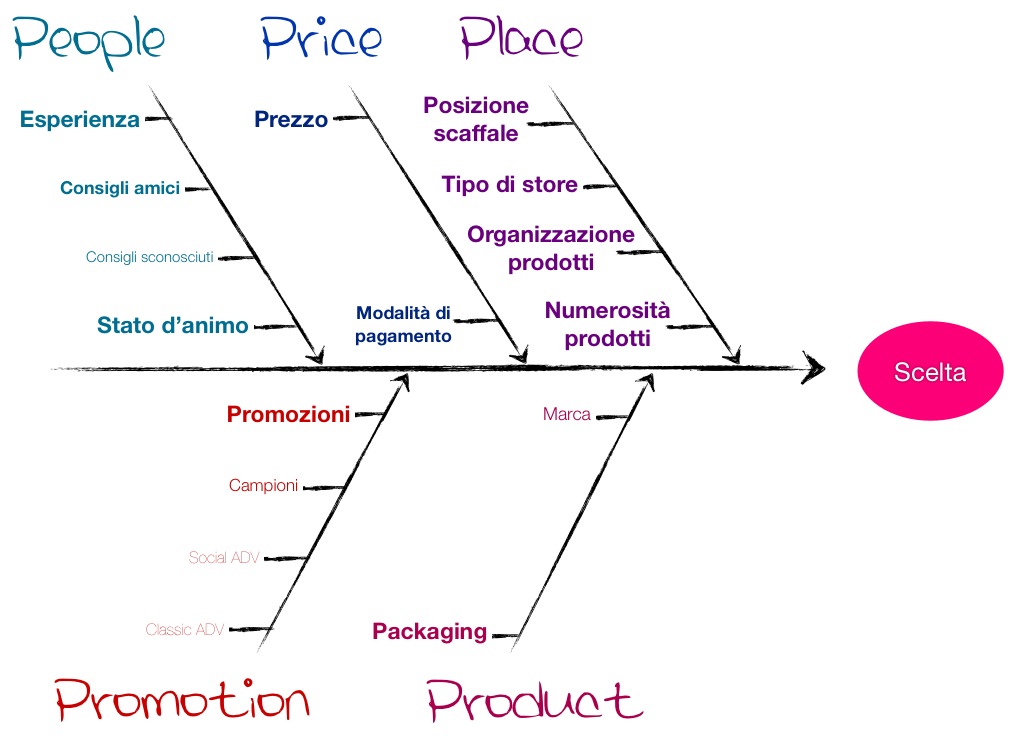
Cosa influenza gli acquisti?
Il diagramma di Ishikawa è un ottimo modo per lavorare con il tuo team per trovare soluzioni. È un diagramma collaborativo, che incoraggia i team a esaminare tutte le informazioni disponibili e a discutere la migliore linea d'azione.

Diagramma di Ishikawa Ishikawa diagram qaz.wiki
Ishikawa Diagram: A diagram that shows the causes of an event and is often used in manufacturing and product development to outline the different steps in a process, demonstrate where quality.
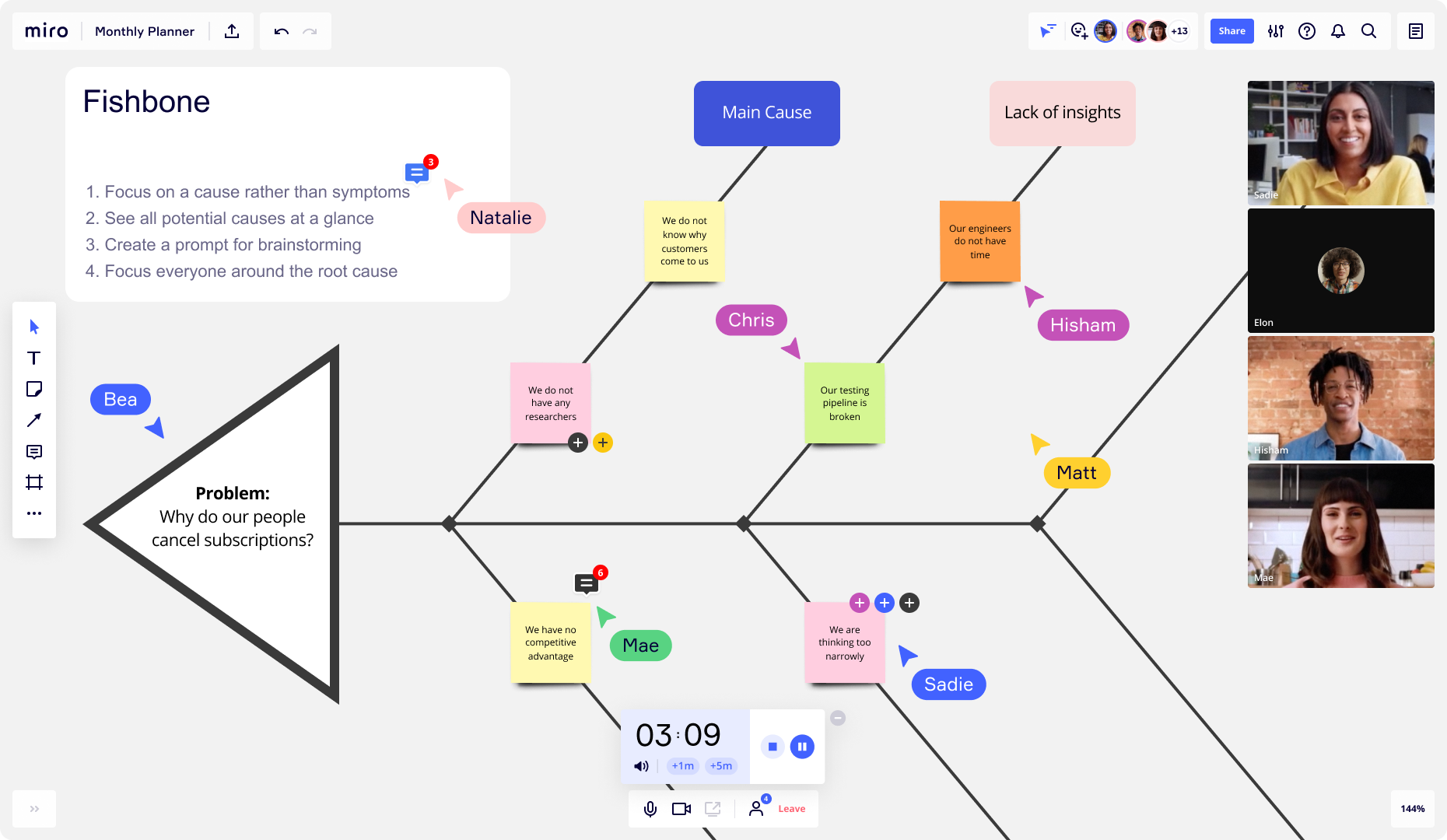
Diagramma di Ishikawa Cosa è, Come Farlo e a Cosa Serve? Miro
Il diagramma di Ishikawa è una tecnica manageriale utilizzata nel settore industriale e nei servizi per individuare la/e causa/e più probabile/i di un effetto (o problema). È anche chiamato diagramma causa-effetto o diagramma a lisca di pesce . Indice 1 Origini 2 Applicazioni nel brainstorming 2.1 Le 4 M 3 Analisi 4 Voci correlate 5 Altri progetti

Rappresentazione del diagramma di Ishikawa con raggruppamenti (cluster
An Ishikawa diagram is designed to show the potential causes of a specific event or process. It is commonly used in product development to brainstorm and outline the different steps within a given process, allocate resources, and determine whether quality control issues are likely to arise. The diagram is named after its creator, Kaoru Ishikawa.
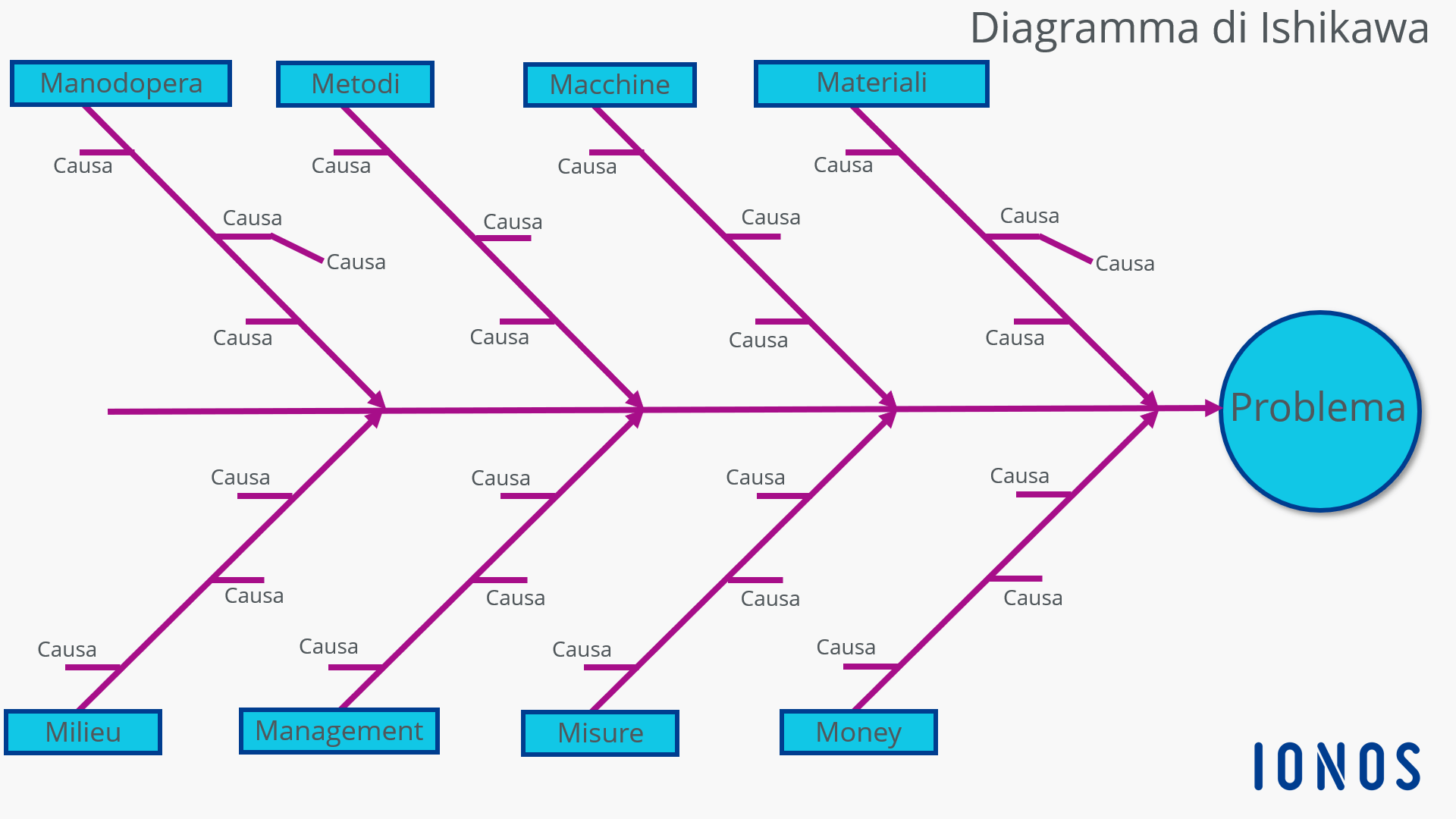
Diagramma di Ishikawa Come funziona il diagramma causa effetto IONOS
Ishikawa Diagram Template. A customizable vector ishikawa diagram template is offered for free download and print. Creating such a diagram requires less than 5 minutes for the predefined shapes. This amazing ishikawa diagram example is created by EdrawMax, which is available in different formats.
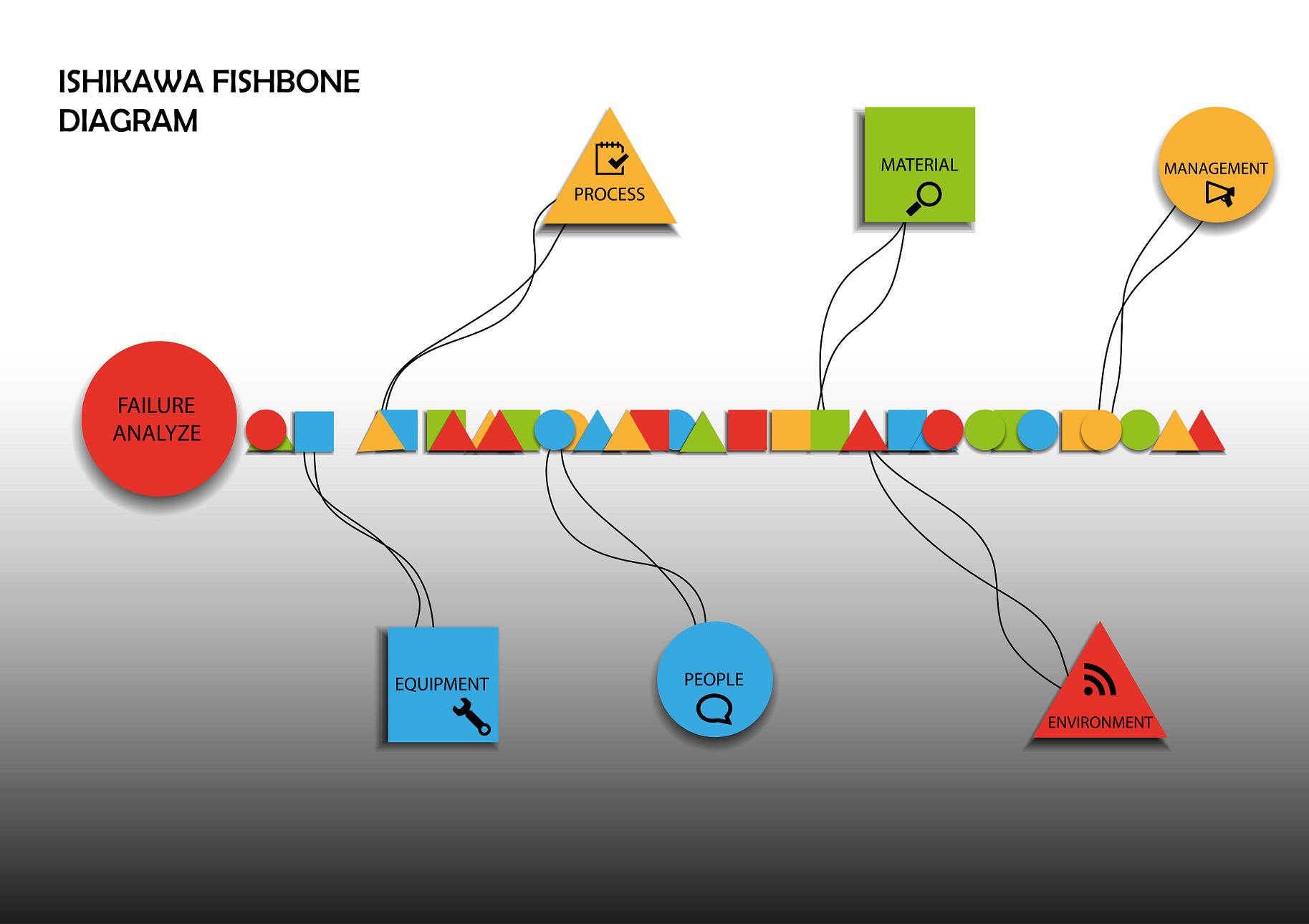
Veja o Que é e Como Usar o Diagrama de Ishikawa
Il diagramma a lisca di pesce è noto anche come diagramma di Ishikawa o diagramma causa ed effetto. Questo perché descrive le potenziali cause di un determinato problema o risultato. Il diagramma assomiglia a una vera lisca di pesce, con una lunga linea che percorre il centro e punta al risultato principale, chiamato anche "dichiarazione del.

Visio ishikawa vicenza 21062011
Ishikawa diagrams (also called fishbone diagrams, [1] herringbone diagrams, cause-and-effect diagrams) are causal diagrams created by Kaoru Ishikawa that show the potential causes of a specific event. [2] Common uses of the Ishikawa diagram are product design and quality defect prevention to identify potential factors causing an overall effect.

Strumenti per la gestione del rischio ARCADIA SRL
Ishikawa diagram, also called the Fishbone diagram, is a tool used to identify problems in a system. It shows how causes and effects are linked and helps analyze what is going wrong with systems, processes, and products. The name comes from Japanese engineer Kaoru Ishikawa who developed the method in the 1960s.

Diagramma di Ishikawa Fysis.it
23 November 2023. In an ever-evolving business world, the ability to dissect problems and pinpoint their origins is invaluable. The Ishikawa Diagram, also known as the fishbone diagram, has established itself as a fundamental tool for cause-and-effect analysis, favored by businesses and individuals for its effectiveness in problem-solving.
:max_bytes(150000):strip_icc()/IshikawaDiagram2-386e9108096f4149b67cb5a803c45dd0.png)
Ishikawa Diagram What It Is, Common Uses, and How To Make One
Ishikawa diagrams (also called fishbone diagrams or cause-and-effect diagrams) are diagrams that show the causes of a certain event. Common uses of the Ishikawa diagram are to identify potential factors causing an overall effect. Each cause or reason for imperfection is a source of variation. Causes are usually grouped into major categories to.
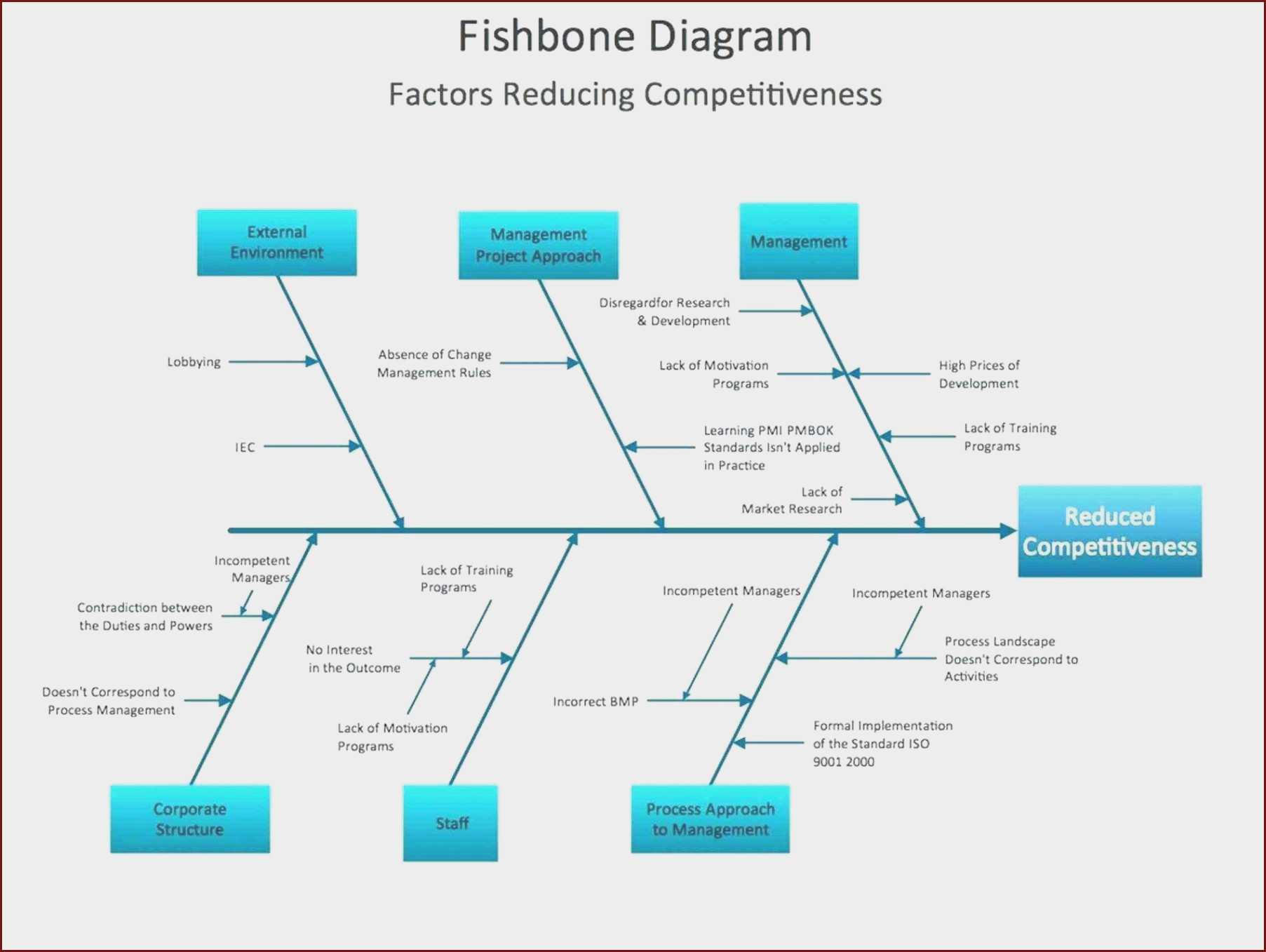
Ishikawa Diagram Template Word
An Ishikawa diagram is an established tool for visualizing the root causes of business problems. Try a free, customizable template in Lucidchart today! In addition to our pre-made Ishikawa diagram example, Lucidchart has several diagram templates for business, including BPMN and SWOT analysis. Sign up for a risk-free trial today!

Diagrama de Ishikawa SAC Logística
An Ishikawa diagram, also known as a fishbone diagram or cause-and-effect diagram, is a visual representation used to analyze and display the potential causes of a specific problem or effect. This diagram is named after Professor Kaoru Ishikawa, a Japanese quality control statistician, who popularized its use in the 1960s.

Diagramma di Ishikawa Come funziona il diagramma causa effetto IONOS
Fishbone Diagram / Cause and Effect Diagram. Download a fish bone diagram template for Excel or print a blank cause and effect diagram. A Fishbone Diagram is another name for the Ishikawa Diagram or Cause and Effect Diagram. It gets its name from the fact that the shape looks a bit like a fish skeleton. A fish bone diagram is a common tool used.

Diagramma di Ishikawa e problem solving La Mente è Meravigliosa
The Ishikawa diagram or fishbone diagram or also cause-and-effect diagram are diagrams, that shows the causes of a certain event. A common use of the Ishikawa diagram is in product design, to identify desirable factors leading to an overall effect. Media in category "Ishikawa diagrams"
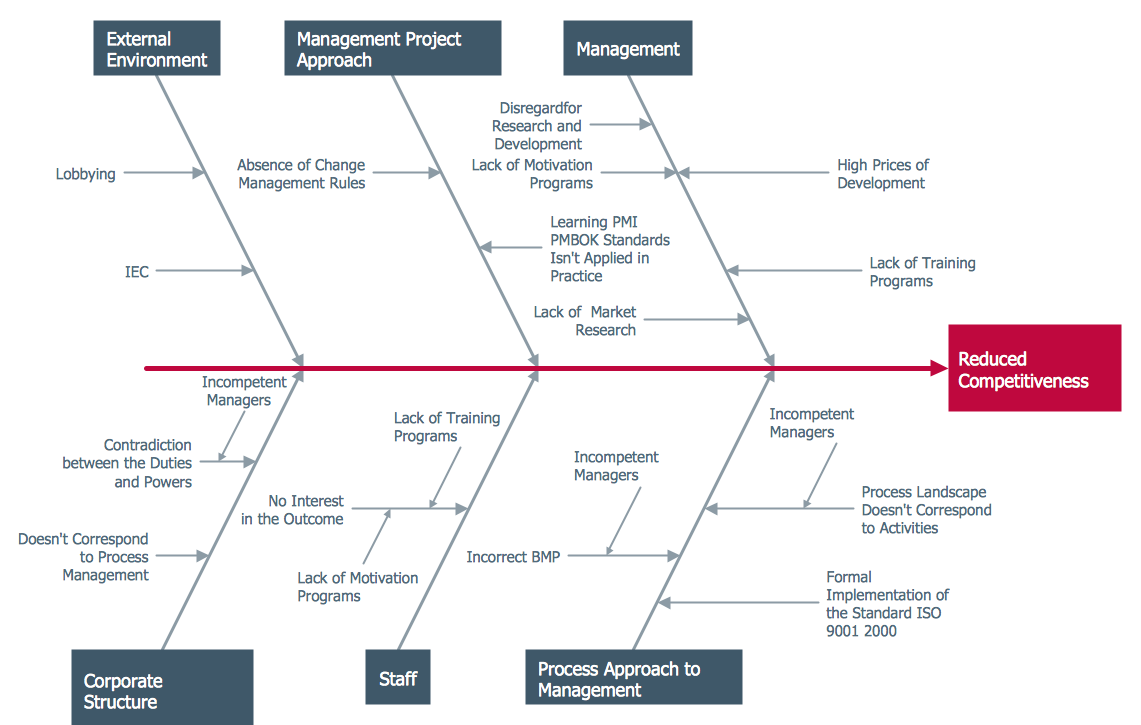
Ishikawa Diagram Professional Business Diagrams
Il diagramma di Ishikawa, che deve il proprio nome al suo ideatore Ishikawa Kaoru, un chimico giapponese, è stato concepito per aiutare le aziende a cercare in maniera strutturata i problemi e le relative cause. Ecco perché questo strumento è chiamato anche diagramma causa effetto.
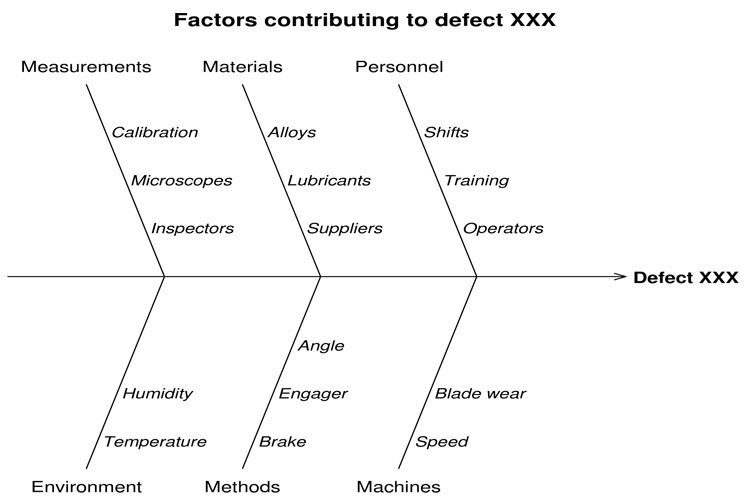
Diagramma Di Ishikawa
Un diagramma di Ishikawa, noto anche come diagramma a lisca di pesce o diagramma causa-effetto, è una rappresentazione visiva utilizzata per analizzare e visualizzare le potenziali cause di un problema o effetto specifico.